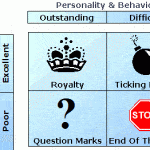If you’re only using AdWords, you’re missing online marketing opportunities to promote your health club or fitness business.
Check out these digital marketing alternatives for health and wellness businesses:
1. Yelp
Yelp is the most popular online review site — and it’s the first stop for most consumers when they’re looking for a local brick-and-mortar business like a health club or fitness studios. In fact, over 80% of the folks who visit Yelp plan to buy the service they’re researching within the next week.
To make the most of Yelp, claim your business listing and complete your business profile as completely as possible.
Then, take a look at the business upgrade package, currently about $75/month. We like this package, because it:
- prevents competitors’ ads and reviews from appearing on the same page as your listing (this is huge, because those annoying competitor ads and reviews at the top of each business listing are annoyingly effective at distracting YOUR prospective clients)
- adds a custom slideshow which tells your business story in pictures (you can also include slides with marketing messages, and you can include marketing content in slide captions)
- adds a call to action to your listing that you can update as often as you wish
It also includes simple but informative page analytics and visitor engagement metrics.
You can also pay to create Yelp deals, similar to old-school Groupon deals, and to run ads on Yelp separate from your business listing. On deals, you’ll revenue-share with Yelp. On ads, you’ll usually set a per-day budget. Yelp guesttimates that the average cost per click is currently about $4 — higher than most folks pay per click on Adwords, but the quality of the lead is generally much higher on Yelp, too.
2. NextDoor
A friend of mine once described NextDoor as “Facebook for Neighborhoods.” NextDoor is a free, private social network for actual neighborhoods. Only verified residents of a given neighborhood can join that group. At present, the site doesn’t offer any paid advertising or marketing opportunities for businesses, but that may well change over time.
Right now, the best way to capitalize on NextDoor is to encourage your customers to recommend your health club to other neighborhood members and to refer people to it when neighbors ask for recommendations.
You can also encourage your staff to join their own NextDoor neighborhood — or start one up — so that they can post recommendations for your business. If they do this, it’s important to be transparent about their employee status, however.
You can also encourage customers and staff to post invitations to free events using the Event feature on NextDoor. After all, your business is part of the neighborhood too. Doing “neighborly” things adds to your credentials as a valuable member of the community. Food drives, yoga mats for economically-disadvantaged moms, you name it — whatever fits the “character” of your club.
Just hold your “advertising” urges in check and remember that the goal is to be a good neighbor first while subtly promoting your business.
3. Facebook Ads, Promoted Posts and Events
You’re probably already posting on Facebook, and you’ve probably noticed promoted posts and the small ads that run on the right side of many Facebook page.
But are you using these tools to promote your health club or fitness business?
Facebook Ads are surprisingly simple and affordable. Even better, they let you target specific demographics and interests within a radius around your business address. It’s very important to use the geotargeting feature — otherwise, you’re paying to put your ad in front of people who are hundreds and thousands of miles away.
Facebook Events allow you to set a time and place for events your business is promoting, such as a webinar, celebrity appearance, or just the Workout of the Day. Folks can “like” the event, express interest in attending, and even get updates that you post. You can also send them to your site to register if you like.
Promoted Posts are Facebook ads that look like posts and show up in a user’s newsfeed, based on what Facebook knows about that user’s interests. For instance, Facebook knows I like 1970s rock bands, so I got a promoted post for Peter Frampton’s latest acoustic album. If your page allows it, people can comment on promoted posts and you can actually engage directly with them.
4. Your Local Newspapers
“Wait,” you ask. How is that online? Most local and regional newspapers — both free and paid subscription version — have an online presence, and virtually all are anxious to attract local online advertisers.
Because their marketing is VERY local, prices tend to be lower, highly negotiable, and your ad’s ability to spend more time in front of local prospects is greater than it might be for, say, a Facebook Ad. You may be able to cut a deal for a larger ad, more impressions, or greater zipcode coverage with a truly local audience.
Local and regional newspapers also have email subscriber lists. They won’t give you that list of addresses, for any price — but they will rent you the use of it. Talk to them about increasing your club’s local exposure via ads or promotions to their email subscribers.
5. Complementary Local Businesses
Co-marketing opportunities are one of the most underappreciated opportunities local health and wellness businesses have. Is another business going to stick your ad on their website? Probably not, and you probably shouldn’t stick their ad on YOUR website, either.
What you CAN do is co-market to each other’s email lists, host joint events, support each other on Facebook, Yelp, and NextDoor using some of the principles we outlined above, and leverage your collaboration in your marketing communications.
This works when you’re both complementary health and wellness businesses — and it also works if you share a similar type of customer, even if you’re in wildly different industries.
For instance, a diabetes treatment center and the right kind of fitness business would be natural marketing partners. A weight loss business might be a natural co-marketing partner for a specialty women’s boutique or a local jeweler. And that 50-something guy hanging out at the local BMW dealership’s website may be ripe for a health and wellness pitch aimed at encouraging baby-boomers to take action and “get back in the game.”
6. Local Non-Profits
Again, look for organizations that share a natural affinity with your health club or wellness business.
Cash sponsorships and in-kind donations of programs and services can buy online visibility for your wellness business on the non-profit’s webpage, as a sponsor of their email newsletter, and as a co-marketing partner on social media sites like Facebook and NextDoor.




